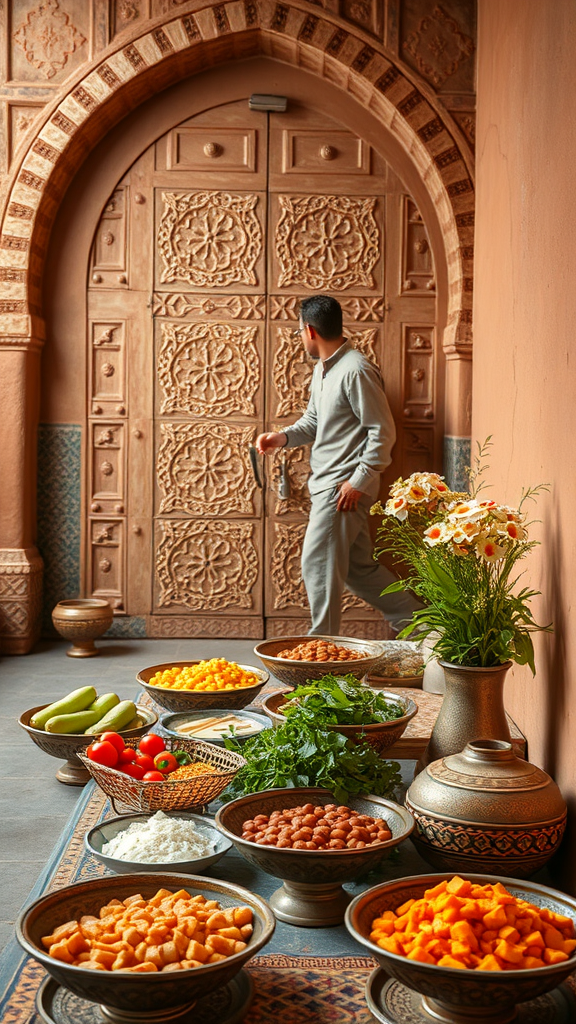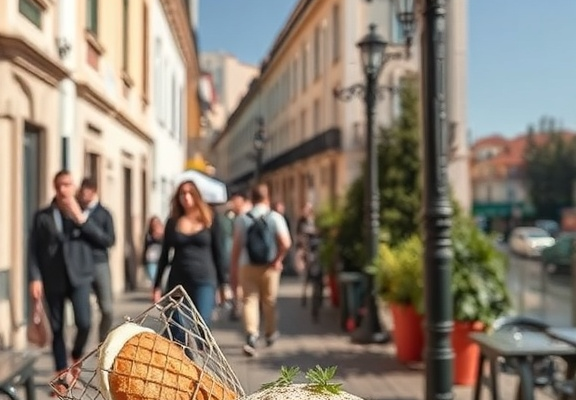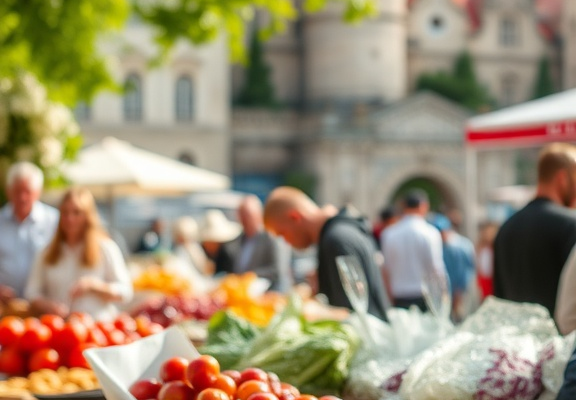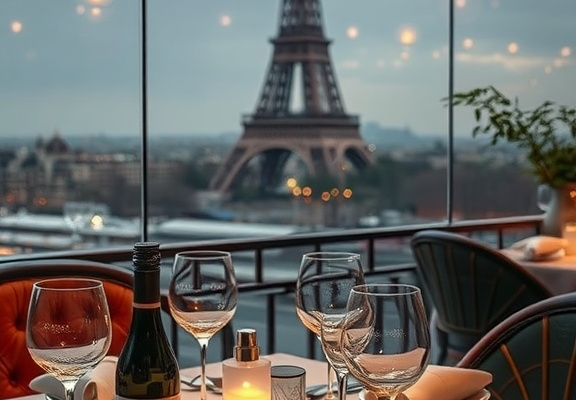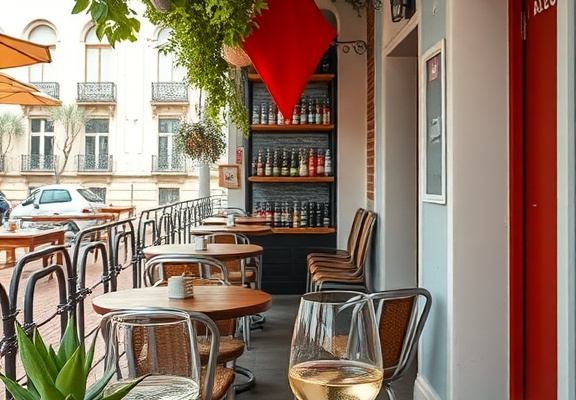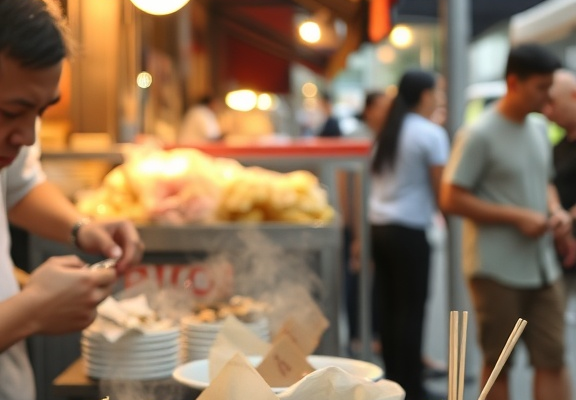Exploring Traditional Moroccan Dishes: A Journey Through Cultural Food Experiences
When it comes to culinary adventures, few places can rival Morocco. The country is famed for its vibrant culture, which is beautifully reflected in its traditional dishes. Exploring traditional Moroccan dishes is not just about tasting food; it’s an immersive experience that connects you to the heart of Moroccan heritage. Every meal tells a story, influences the senses, and reveals the rich history of the land.
Thank you for reading this post, don't forget to subscribe!One of the most iconic dishes you must try is Tagine. This slow-cooked stew is made in a traditional clay pot, which helps to trap in flavors and moisture. Tagine can be made with various meats, vegetables, or legumes, often combined with a symphony of spices, including cumin, cinnamon, and saffron. You can enjoy a chicken tagine with preserved lemons and olives or a rich lamb tagine with apricots and almonds. Each variant showcases regional ingredients and cooking techniques, making your taste experience a glimpse into Moroccan life.
Another must-try dish is Couscous, celebrated as a staple of Moroccan cuisine. Traditionally served on Fridays, it’s made from steamed semolina grains, often accompanied by a variety of vegetables and meats. The way couscous is prepared is an art form that requires patience and expertise. The grains are fluffed and served in a large communal dish, bringing people together to share and enjoy. Often, you will find couscous topped with stewed vegetables, chickpeas, or tender lamb, presenting a delightful explosion of flavors.
A visit to Morocco wouldn’t be complete without sampling Bastilla. This wonderfully unique dish combines sweet and savory flavors. Typically made with pigeon or chicken, it is layered with spiced meat, eggs, and almonds, all wrapped in thin layers of pastry. The dish is then dusted with powdered sugar and cinnamon, making it an elaborate treat often served at special occasions. Each bite you take offers a combination of textures and a sweet surprise, captivating your taste buds.
When it comes to snacks, Mechoui is a favorite among locals. This tender, slow-roasted lamb is seasoned with spices and is often served during special feasts or events. Street vendors often prepare mechoui, inviting you to experience the aromas that waft through the air, mingling with the lively chatter of Moroccan streets. Enjoying this dish provides not only a taste of pure indulgence but also a glimpse into Moroccan hospitality.
Mint tea plays a crucial role in Moroccan culture and is served in almost every household. This sweetened green tea is infused with fresh mint leaves and is a symbol of hospitality. Sharing a pot of mint tea is more than just enjoying a refreshing drink; it’s a way for families and friends to connect. You may find yourself sitting on beautiful carpets, surrounded by laughter and warmth, while sipping this restorative beverage.
To further enhance your cultural experience, consider taking part in a traditional Moroccan cooking class. This activity allows you to dive into the culinary techniques and ingredients that define Moroccan cuisine. You’ll find yourself mastering the art of preparing tagine or rolling out fresh dough for bread. Cooking alongside a local chef gives you insights into the dishes’ significance and can create unforgettable memories.
- Sample Local Markets: Visit bustling souks, where the colors, scents, and sounds create an enchanting atmosphere. Don’t forget to try street food like grilled skewers and fresh bread.
- Explore Regional Variations: Each region in Morocco has its own specialties. From the seafood of Essaouira to the spicy dishes of Marrakech, each area offers a unique flavor profile.
- Taste with All Senses: Engage with the environment—see the vibrant spices, hear the sizzling pans, and smell the enticing aromas, enhancing your overall dining experience.
By exploring traditional Moroccan dishes, you embark on a culinary journey filled with colorful flavors, diverse ingredients, and rich culture. As food becomes a bridge to understanding Moroccan life, every bite unveils new histories and experiences. So, take your time, engage with locals, relish in every dish, and let your taste buds guide you through one of the world’s most fascinating food landscapes. Discovering Moroccan cuisine is truly a delightful adventure waiting to unfold.
The Role of Food in Moroccan Festivals and Celebrations
Food is a central element in Moroccan festivals and celebrations, playing a vital role in showcasing the rich culture and traditions of the country. Each festival features a variety of dishes that symbolize hospitality, community, and celebration. Understanding the types of food associated with these events offers a glimpse into the importance of gastronomy in Moroccan heritage.
During the Eid al-Fitr celebration, which marks the end of Ramadan, families come together to share meals and enjoy a feast. This festival emphasizes the spirit of giving and gratitude. Traditional dishes include:
- Shebakia: A sweet pastry flavored with sesame and soaked in honey, often served with mint tea.
- Couscous: A staple dish prepared with steamed semolina, typically served with rich meat and vegetable stews.
- Tagine: A slow-cooked stew named after the earthenware pot in which it is cooked, featuring various ingredients from chicken to fish.
These dishes represent both the joy of breaking the fast and the gathering of loved ones, forging bonds through shared culinary experiences. The act of sharing food fosters community and strengthens familial ties, making it an essential part of the celebration.
Another significant festival in Morocco is Mawlid an-Nabi, which celebrates the birth of the Prophet Muhammad. This occasion is marked by special meals prepared at home and community feasts. Popular foods during Mawlid include:
- Meat dishes: Often lamb or chicken, cooked with spices and served with bread.
- Sweets: Delicacies like baklava and Moroccan pastries are shared among neighbors to foster goodwill.
During Mawlid, it is customary for families to invite each other over to share these meals, reinforcing social connections and the spirit of togetherness. Food becomes not just nourishment but also a means of expressing love and respect for one another.
The harvest festival, known as the Moussem, is another notable event where food takes center stage. This festival celebrates the agricultural richness of Morocco and its deep-rooted traditions. Here’s what you might find:
- Couscous with seven vegetables: A dish symbolizing abundance, prepared with fresh, seasonal produce.
- Fresh fruits: Locally grown figs, oranges, and pomegranates are often enjoyed, reflecting the country’s agricultural diversity.
During Moussem, villagers gather to prepare these dishes, encourage local agriculture, and celebrate the harvest together. Sharing food acts as a reminder of the hard work that farmers put into their crops, emphasizing the connection between the land and its people.
Furthermore, food during wedding celebrations is sumptuous and vibrant. Feast preparations may take days, as families want to honor their guests with lavish hospitality. Guests are treated to a variety of dishes, usually including:
- Roasted lamb: Seasoned and cooked to perfection, often presented as the highlight of the wedding feast.
- Pastilla: A unique pastry filled with pigeon or chicken and dusted with sugar and cinnamon, showcasing a blend of sweet and savory.
The abundance of food in weddings reflects not only the couple’s joy but also the unity of families coming together. It’s a moment to showcase culinary skills and traditions passed down through generations.
Festivals like the Cherry Festival in Sefrou also highlight the importance of food in celebrations. This event features cherry-based dishes, emphasizing local produce and the creative use of fruits in Moroccan cuisine. Attendees enjoy:
- Cherry jam: A sweet accompaniment for bread.
- Fresh cherries: Eaten right from the tree, emphasizing the freshness of the harvest.
The Cherry Festival not only celebrates a specific fruit but also promotes community spirit and the importance of locally-sourced ingredients in Moroccan cooking.
Food in Moroccan festivals and celebrations goes beyond mere sustenance. It embodies the values of sharing, community, and cultural pride. Through every dish prepared and shared, the rich traditions and familial ties of Moroccan life are highlighted, inviting all to partake in the joyous experiences that mark these special occasions.
Conclusion
Cultural food experiences in Morocco offer a rich tapestry of flavors and traditions that reflect the country’s diverse history. Exploring traditional Moroccan dishes like tagine, couscous, and harira not only tantalizes the taste buds but also tells a story steeped in centuries of heritage. Each meal provides a glimpse into Morocco’s past, showcasing the influences of Berber, Arabic, and Mediterranean cuisines. Whether you savor the warm spices of a fragrant tagine or indulge in sweet pastries, you embrace the essence of Moroccan life.
Moreover, food holds a significant place in Moroccan festivals and celebrations. It serves as a universal language that unites families and communities during special occasions. Festivals such as Eid al-Adha and Ramadan highlight the importance of sharing meals, where traditional dishes become central to the celebrations. You can experience firsthand how food fosters connection, as families gather around large platters, emphasizing the joy of togetherness.
As you immerse yourself in the culinary landscape of Morocco, you’ll find that every dish is more than just a meal; it’s a cultural experience that engages all the senses. The vibrant colors, aromatic spices, and delightful textures invite you to explore not just the flavors but also the stories behind them. Whether you’re wandering through bustling markets or participating in local cooking classes, the journey through Morocco’s culinary delights will leave a lasting impression on your palate and your heart. Embrace the adventure, savor the flavors, and celebrate the rich culinary heritage that Morocco has to offer.

